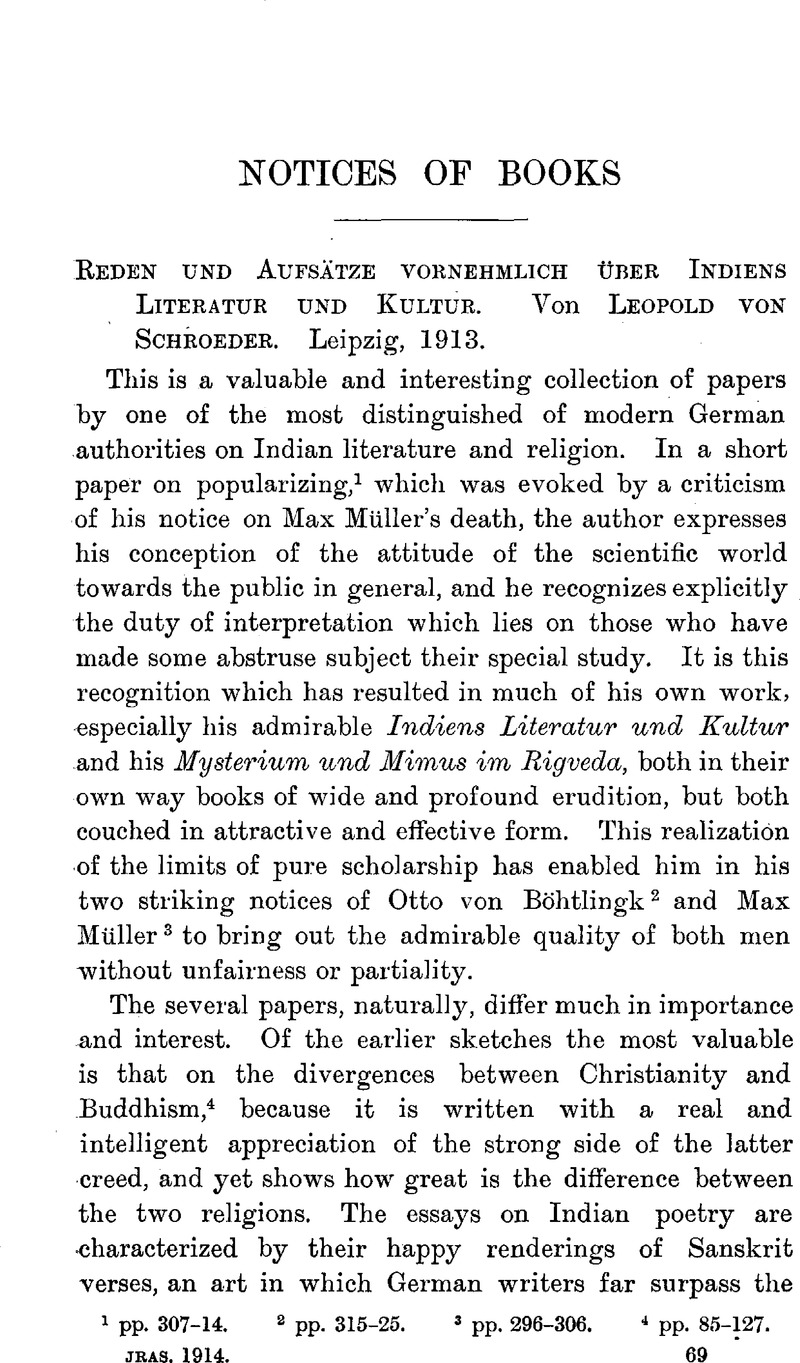No CrossRef data available.
Published online by Cambridge University Press: 15 March 2011

page 1071 note 1 pp. 307–14.
page 1071 note 2 pp. 315–25.
page 1071 note 3 pp. 296–306.
page 1071 note 4 pp. 85–127.
page 1072 note 1 pp. 326–57.
page 1072 note 2 pp. 348–430.
page 1073 note 1 p. 389, n. 1.
page 1073 note 2 pp. 368–92.
page 1075 note 1 Keith, , JRAS. 1907, pp. 937 seqq.Google Scholar
page 1076 note 1 pp. 398 seqq.
page 1077 note 1 pp. 407–30.
page 1077 note 2 JRAS. 1911, pp. 261–4.Google Scholar
page 1077 note 3 The Legend of Sir Perceval, i, 17; ii, 217, 274, 281.Google Scholar
page 1077 note 4 Griechische Mythologie, ii, 1415 seq.Google Scholar
page 1077 note 5 pp. 402, 403.
page 1078 note 1 1909, pp. 200 seqq.; 1911, pp. 981 seqq. Sir James Frazer's unfortunate failure to make himself familiar with the literature of Vedic religion accounts for his ignorance of von Schroeder's great work, Mysterium mid Mimus, and explains his statements in The Scapegoat, pp. 384 seqq.Google Scholar; The Dying God, pp. 109 seqq.Google Scholar
page 1078 note 2 See Keith, , JRAS. 1909, pp. 590 seqq.Google Scholar; 1910, pp. 519–21. Sir J. Frazer again has overlooked von Schroeder's classical treatise in his discussion of transmigration in Spirits of the Corn and of the Wild, ii, 302Google Scholar, where he denies borrowing on the wholly inadequate ground that there was not time for the Buddha's views to penetrate to Empedokles, with whom he compares the Buddha. But pessimism based on transmigration is older than the Buddha.